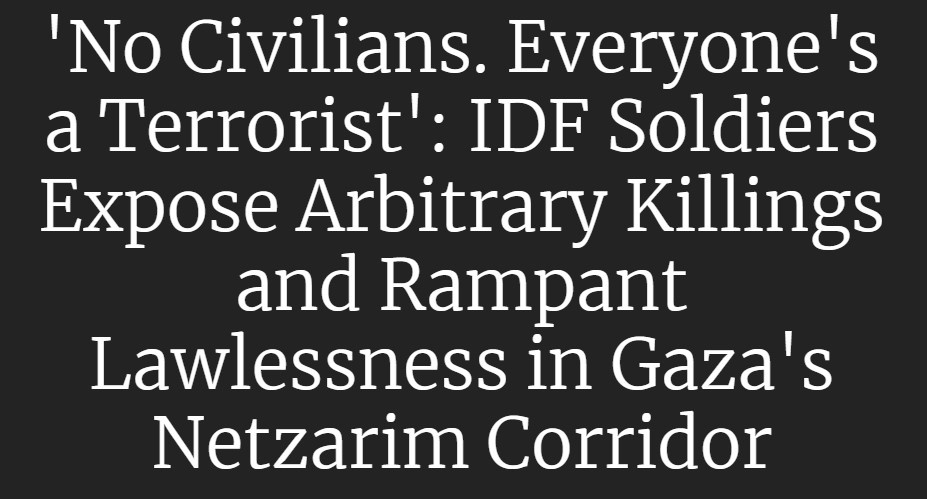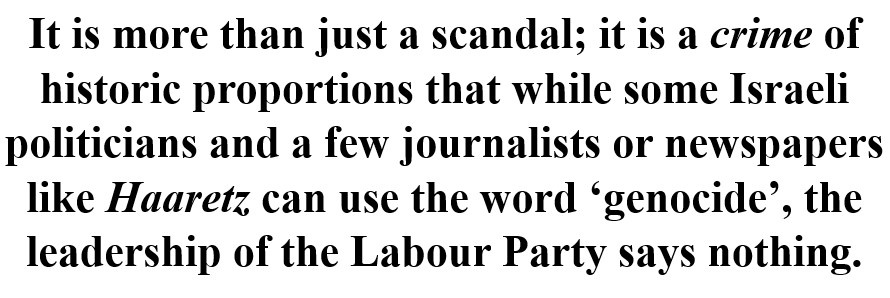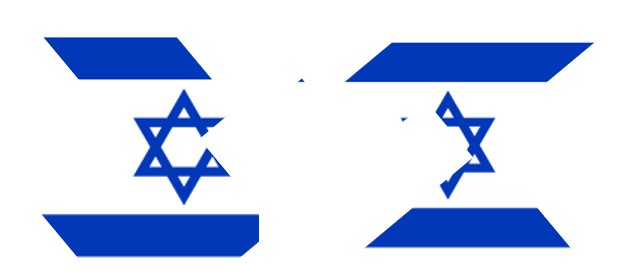By John PIckard
Notwithstanding the fall of the Assad regime in Syria, in itself a momentous event, it is Israel, more than any other Middle East state, which faces unprecedented historical challenges and ultimately a transformation.
Israel’s military has mercilessly battered the Gaza Strip; its air force has reduced Hezbollah in Lebanon to a fraction of its former strength; and it has used the upheaval in Syria as an opportunity to occupy more territory in that state. In the West Bank, the israeli government has allowed – and to a degree encouraged – pogroms by Jewish settlers against Arab villagers, while the IDF harass and brutalise the rest of the Palestinian population.
This year has shown as never before the overwhelming martial superiority of Israel, like a modern Spartan state, stronger than all of its potential regional rivals put together. But as much as it can express such a military preponderance, this year has also marked Israel’s greatest political defeat in its seventy-six year history.
The destruction of Gaza, killing in the process 46,000 Palestinians, the big majority of them women and children, has sent shock waves around the world. Few people any longer believe that the constant bombing of schools, hospitals and refugee shelters – with dozens still being killed every night – has any ‘military’ justification. Most recently, IDF soldiers have stormed and burned the last remaining hospital in northern Gaza, dispersing the medical staff, patients and those sheltering there. (Report on Al Jazeera here)
No-one believes the Israeli government’s claims that it isn’t deliberately policy of making Gaza unihabitable. It is universally believed, too, that it is Israeli policy to deliberately starve and deny water to Gaza’s two million refugees, in the middle of winter.
Biggest anti-war movement in modern history
Among workers and youth globally there is an overwhelming consensus that Israel is committing a genocide in Gaza. In demonstrations, rallies, occupations and meetings across the globe, we have seen the biggest anti-war movement in the whole of modern history bar none.
It is as a result of this massive popular wave of revulsion that international organisations have had no option but to recognise the reality of genocide in Gaza.
- It was nearly a year ago, in January that at the International Court of Justice, the South African government accused the Israel government of genocide in Gaza, a case that the ICJ thought ‘plausible’.
- In November, the International Criminal Court (ICC), issued arrest warrants for Israeli Prime Minister, Benjamin Netanyahu and former Defence minister, Yoav Gallant, for alleged war crimes and crimes against humanity
- Earlier this month, Amnesty International concluded that “Israel has committed and is continuing to commit genocide against Palestinians in the occupied Gaza Strip”.
- Then the European Centre for Constitutional and Human Rights also came to the conclusion that “there is a legally sound argument that Israel is committing genocide…in Gaza”.
- Human Rights Watch also declared that “Israeli authorities are responsible for the crime against humanity of extermination and for acts of genocide”,
- The French-based charity, Médecins Sans Frontières, reported that its medical “teams in the north of Gaza are seeing clear signs of ethnic cleansing”.
- Last but not least, the International Commission of Jurists and the United Nations Assembly have condemned Israel’s war on Gaza.
Apart from hundreds of millions of workers, therefore, a growing list of international, legal, aid and humanitarian organisations have acknowledged and condemned the genocide in Gaza. Western politicians are the only social force still standing behind Israel.
The Labour Friends of Netanyahu
In the UK Labour Party, the complicity in genocide of the present Labour leadership – the ‘Labour Friends of Netanyahu’ – will dog them in future years, far more than the lies used to justify war in Iraq dogged Tony Blair.

What does this mean for Israel? It leaves it as a state with a political and diplomatic reputation in tatters. Whereas the murder of six millions Jews by the Nazis provided a certain reservoir of world support for the young Israeli state after the Second World War – notwithstanding the ethnic-cleansing of Palestinians – now the reverse is true. We have a mirror-image of 1948: there is no fund of support for Israel, except among politicians. Israel is a pariah state, and deservedly so. It is only a matter of time before that has a reflection on the economics and politics in Israel itself.
As one columnist in the Financial Times wrote, for Israel, “the reputational toll of the Gaza war is immense… The authority of Benjamin Netanyahu and his radical acolytes seems secured just as internal fractures over the nature of the Israeli state grow.”
It is in this context that the Israeli historian, Ilan Pappé, talks about the ‘”disintegration” of Israel. Israeli-born Pappé, has written extensively on the history of Israel, on Zionism and, more recently, on its future. He has always argued that the removal of Palestinians from their land in 1948, and the process taking place today in the West Bank and Gaza, are ethnic cleansing.
Western states talk the talk about ‘democracy’
The interview of Pappé here, conducted by Owen Jones (below, 57 minutes), is well worth listening to. His view of likely developments in Israel accords precisely with what we have argued on this website. He, too, points in this interview to the international isolation of Israel and the gulf that has appeared between the ‘global north’ – the main countries of capitalism, especially the USA – and the ‘global south’. The former talk the talk about ‘democracy’, ‘international law’ and ‘governance’ but in the eyes of the latter their words ring hollow when they see western states supporting to the hilt the horrendous Israeli assault on Gaza.
Pappé argues, absolutely correctly, that “Israelis are facing a moment of truth”. There are those on the extreme right of Israeli politics who want to destroy the Palestinians as a people and, as he says, even “as an idea”. But that vision requires an endless application of increasingly brutal military force. It means not only permanent wars and constant assertion of military superiority, but massive economic crises and huge financial support, particularly from the US.
“Normal people” Pappé argues, even in Israel, don’t want this. They do not share the vision of the extreme right, and they understand, albeit vaguely, that Israel is “digging its own grave” in following such a policy. That is why there has been anything up to three quarters of a million Israelis who have left since October 7, 2023.

How long can Israel go on using naked force to control an Arab population more or less the same size as the Israeli Jewish population? They are policing the West Bank, as Pappé suggests, as a “mega-prison” and Gaza as something worse. Even if the Israeli government manage in the short term to deport or expel some Palestinians, the Middle East and world political situation – not to mention the Palestinians themselves – will not allow for the wholesale expulsion of an entire population. The whole project of the Israeli right wing, Pappé argues, is unsustainable in the long run.
Not the beginning of a new chapter, but the end of the first
Pappé argues in the interview that what we are seeing in Gaza, as horrifying as it is, is not the beginning of a new chapter, but the end of the first, most brutal chapter of Palestinian history.
The world is changing. Even among Jews across the globe, public opinion is shifting. Owen Jones points out that 30% of American Jews see Gaza as genocide and the figure rises to 45% among young American Jews. Pappé responds that among activists, that figure is almost certainly a lot higher still.
Last but not least, as we have argued in Left Horizons, Pappé suggests that we have not seen the end of the Arab revolution and the development of even one significant democratic movement in the Arab world would completely transform the situation for Israelis and Palestinians.
In an earlier interview, Pappé referred to the decolonisation of the Arab world and said, “we have to be wary of it, because look at decolonisations around the world. Quite often what replaced the colonial regime was nothing to write home about”. He is right, in so far as the leaders of the various corrupt Arab regimes – whether military dictatorships or kingdoms – are as much a barrier to Palestinian freedoms (or that of any other Arab people) as is Israel.
A big movement in any major Arab country, based primarily on workers, but drawing in women, students and youth, unifying people of different faiths and ethnicities – that is something that would inject an entirely new dynamic into Middle East politics as a whole, and not least into Israel itself.

International commentators outside the ranks of establishment politicians acknowledge that fact that Israeli policy in Gaza is genocide, as do many humanitarian, charity and legal organisations. Although the Israeli government does its best to hide the horrors of Gaza from its own population, it is impossible to keep everyone in the dark.
Even in Israel itself, there are still humanitarian and civil rights organisations that draw attention to the war crimes of the IDF. There are growing numbers of serving and reserve IDF soldiers who are willing to speak out about random killings of Palestinians in Gaza and the West Bank.
It is more than just a scandal: it is a crime of historic proportions that while some Israeli politicians and a few journalists on newspapers like Haaretz can use the word ‘genocide’, the leadership of the Labour Party says nothing. They appear to be so much in thrall to the Labour Friends of Netanhayu that they look the other way and for that, they will not be forgotten or forgiven.
The out-and-out anti-Arab racists among the Jewish population, particularly those around the settler movement, are an armed and dangerous political force and they will not give up what they see as their ‘right’ to steal land and property from Arabs anywhere in their reach. But their racist project will come up against cold, hard realities: that world opinion is solidly against them; that half the Israeli Jewish population do not agree with them and, not least, that tens of millions of Arabs in the region will oppose them. The next phase of the ongoing political crisis that is Israel will involve Israelis fighting other Israelis, Jews fighting Jews, while the rest of the world looks on.




Comrade John Pickards article above on the ongoing disintegration of the state of Israel is a timely reminder of the poisonous legacy politics of the far right regardless of its point of origin.
Given the history of Jewish people who themselves were victims of the most appalling ethnic cleansing at the hands of the Nazis to allow creatures such Netanyahu and his pro fascist supporters amoungst the settler’s is a bitter irony that cannot be lost on the majority of Israelis. This development was always implicit in ideas of Zionism.
The prescent political situation has seen a recycling of ideas discredited in the 1930s. It needs to be to be remembered that National Socialism wasn’t the only fascist movement at that time there were others such the Romanian Iron Guard to which the Islamic and Hindu fundamentalists of today have a strong parallel.
The current situation in Israel-Palestine is to paraphrase Lenin is Capitalism being a horror without end. Under different circumstances a Jewish population in the Middle East would be of immense benefit and help to diverse populations. But it is not under capitalist rule. For there to be peace and prosperity here means the death of Capitalism as precursor.
The prospect of inter Israeli civil war is a strong possibility given the slaughterhouse Netanyahu has plunged the region. The fact is that Neither the Jewish or the Islamic fundamentalists offer any way out for their respective communities and only a complete reconstruction of the region as a unified Socialist federation can open a way forward and end this bloody carnival of reaction..
This was the position of the early Israeli Communist party and the basis of opposition of Jewish Marxist to opposing Zionism and nationalism. The party that can unite both Palestinian and Jews in common struggle against capitalism and nationalism is party that will shine a beaming light to this terribley tortured part of the World.